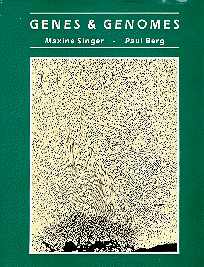
Genes & Genomes
An in-depth overview of the molecular structures and mechanisms that underlie the utilization of genetic information by complex organisms. This excellent text emphasizes the experimental aspects of molecular genetics and is the first text to offer a complete introduction to both principles and methods.
Summary
An in-depth overview of the molecular structures and mechanisms that underlie the utilization of genetic information by complex organisms. This excellent text emphasizes the experimental aspects of molecular genetics and is the first text to offer a complete introduction to both principles and methods.
Translated into French, German, Italian, Japanese, Spanish and Russian
Table of Contents
Part 1: Review of the field of classical and molecular genetics from the beginning of this century to the early 1970s
Part II: Examines the logic, concepts, and general practices of gene cloning and the characterization and manipulation of DNA.
Part III: Examines the structure of eukaryotic genes and our present understanding of their expression
Part IV: Introduces the companion Volume II, Exploring Genetic Mechanisms, a sampling of “case studies” of genetic systems that have been especially illuminated by the recombinant DNA approach.
Reviews
“A superb textbook suitable for college seniors and first-year graduate students.”
-Science
“An excellent and lucid description…These topics are treated in greater depth and with more insight than in any other undergraduate or graduate text currently available.”
-Nature
